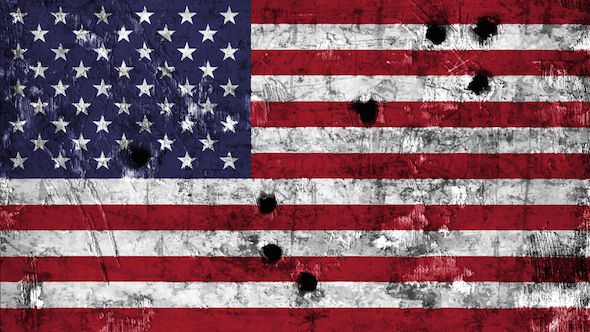
It’s not just Congress that fails to respond after another massacre briefly focuses attention on the irrationality and permissiveness of our country’s firearms statutes. Those of us seeking change also regularly fall down on the job. We express outrage and move on, leaving the debate exactly where we found it.
Opponents of the big gun interests are often insufficiently innovative in what we propose. Let’s face it: We have been losing this fight.
The solutions we suggest are rarely big enough to deal with the problem comprehensively. This opens up advocates of change to predictable attacks. This suggested law, gun-industry apologists say, would not have prevented that shooting. More broadly: How will your little proposals ever get a handle on guns when there are already more than 300 million of them on the streets? (Part of the answer: Deal with ammunition.)
Gun reformers put ourselves at a steep disadvantage from the outset. We often get angry at rank-and-file gun owners who, in turn, see us as elitist big-city folks who don’t respect the traditions of those who have had weapons in their families for generations. Pro-reform politicians often don hunting outfits and shoot deer or birds to curry favor with those who mistrust them. Mostly, the politicians look silly. Anybody can put on a costume.
The time has come to recast this battle as a fight to hold those who make billions of dollars from the sale of firearms accountable for what their products do to individuals and communities. We must call for corporate responsibility, and enforce it by law if it’s not forthcoming. And President Obama, whose outrage about guns many of us share, must be willing to go well beyond what he has done so far.
As is their way, the community organizers and activists at the Industrial Areas Foundation (IAF) are pushing the president to use the federal government’s purchasing power to promote safer guns. To do business with the government, companies would have to be willing to “remove the barriers to getting smart guns and gun safety technologies to market” and cooperate with law enforcement to “identify and isolate dealers that provide large numbers of guns used in crimes.”
Governments at all levels account for roughly 40 percent of gun industry revenues. The federal government alone accounts for about 25 percent. Taxpayers have a right to demand responsibility from an industry that gets so much of our money.
The president won’t much like the slogan of a Metro IAF news conference scheduled for Thursday across from the White House in Lafayette Square—“Clergy and Citizens to President Obama: Stop Whining, Start Working to Curb Gun Deaths.” But the former community organizer might appreciate this: Since his administration has been reluctant to use the taxpayers’ power in the weapons marketplace to promote accountability from the big gun makers, outside pressure might make it easier for him to do the right thing.
He also faces prodding from his fellow Democrats. Both Hillary Clinton and Martin O’Malley have put forward comprehensive gun proposals that are more adventurous than the ideas Obama has embraced. O’Malley deserves particular credit for going far beyond the highly constricted gun-policy conversation. His comprehensive plan includes a proposal that echoes the IAF in mandating that the federal government buy weapons only from manufacturers who adopt basic safety measures and the micro-stamping of weapons.
Arnie Graf, a longtime IAF organizer, explains that micro-stamping can allow law enforcement to trace guns and bullets used in crimes. “Smart guns” that could be used only by their owner would vastly reduce trafficking, prevent accidents and diminish suicides. And since a relatively small number of dealers are responsible for the sale of a large number of weapons used in crime, focusing on those dealers (and demanding that the gun companies stop selling to them) could further reduce gun violence.
So let’s talk less about the NRA and more about those whose interests the NRA serves, the big weapons sellers such as Sturm, Ruger & Co., Smith & Wesson, SIG Sauer, Beretta, Glock and Freedom Group. Let’s insist that Obama put his anger to work. And let’s use our proven capacity for technological innovation to reduce violence.
Responsible business people care about the well-being of their communities and live with all sorts of health and safety regulations. They above all should see how profoundly misguided it is that one of the least accountable industries in the United States involves enterprises selling products that kill people.



Expositores: Oscar Vidarte (PUCP) Fernando González Vigil (Universidad del Pacífico) Inscripciones aquí. Leer más
Una retrospectiva para entender los próximos cuatro años. Leer más
En la conferencia se hará una presentación de los temas más relevantes del proceso de negociación se llevó a cabo desde el 2012, así como del acuerdo de paz firmado entre el Gobierno colombiano y la guerrilla de las FARC a finales del 2016. Se analizarán los desafíos y las... Leer más
El Observatorio de las Relaciones Peruano-Norteamericanas (ORPN) de la Universidad del Pacífico es un programa encargado de analizar y difundir información relevante sobre la situación política, económica y social de Estados Unidos y analizar, desde una perspectiva multidisciplinaria, su efecto en las relaciones bilaterales con el Perú.
© 2026 Universidad del Pacífico - Departamento Académico de Humanidades. Todos los derechos reservados.

